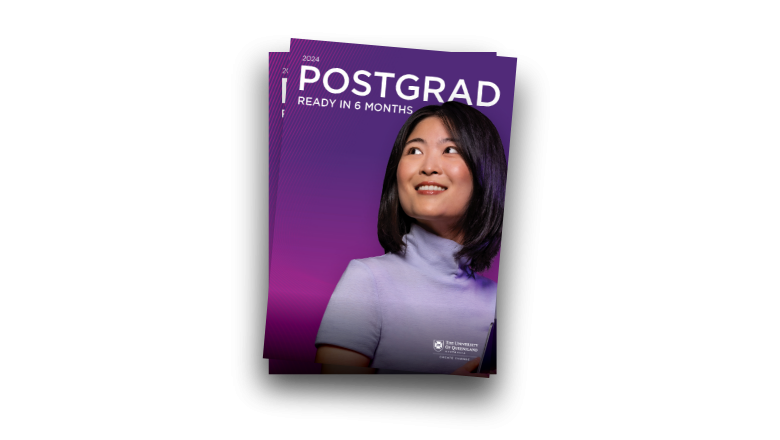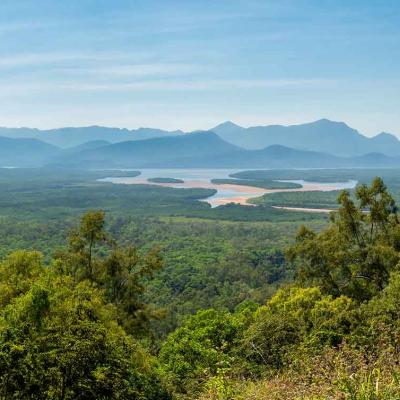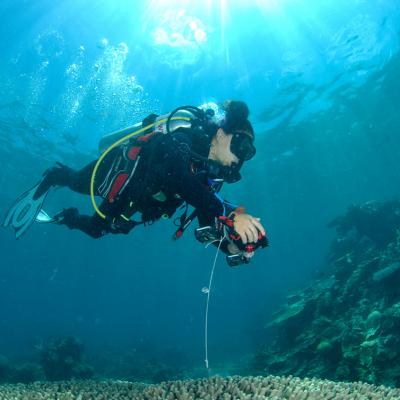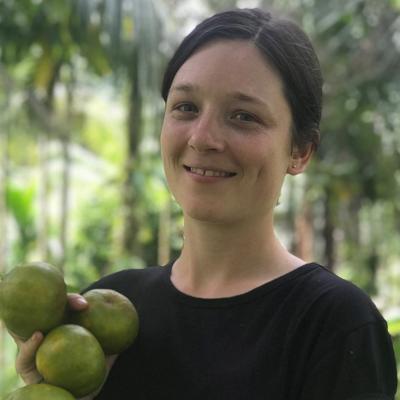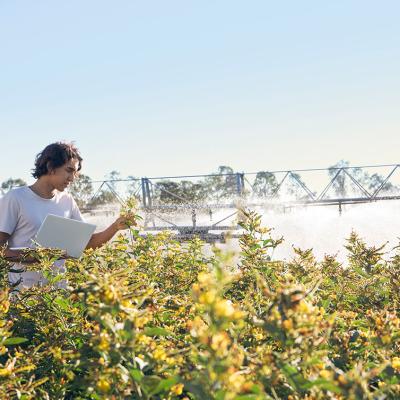Thinking of undertaking agriculture, environment and sustainability studies at a postgraduate level? We’ve talked to a UQ student and alum to get the lowdown on what it’s like and why they love it.
Hamish Litt is currently studying a Graduate Diploma in Agricultural Sciences at UQ's Gatton campus, and James Wheeler is a Master of Environmental Management graduate, having undertaken his degree at St Lucia campus. Both are passionate about sharing their experiences at one of the best universities for sustainability studies, to help you decide whether returning to uni as a postgrad in this study area will assist you in taking the next step forward in your career.
From the ins and outs of UQ student life, to the exciting practical experiences you can be involved in as a postgraduate, let’s take a look at their insights and advice.
What has been your favourite course to study and why?
James: From a content perspective, my favourite course was People, Fire and the Environment. It was fascinating for me to learn about human evolution – how scientists can predict the age of things using carbon and Indigenous fire management practices.
Hamish: I don't have any favourite courses; they've all been amazing! Generally, the courses which have contained a lot of external lecturers have been the best, as we've been able to receive the broadest spectrum of knowledge about on-the-ground industry and governmental challenges.
If I had to pick a favourite course, I would say that Sustainable Soil Management would be my favourite. It's the perfect blend of technical knowledge about soils and broader thinking about agricultural challenges right across the world.
Want to study sustainable agriculture?
Sustainability is embedded in all of UQ’s degrees in agricultural sciences. There are, however, courses you can take in various postgraduate programs in agricultural, plant and animal sciences, like Sustainable Soil Management, that will offer a deep analysis of sustainable approaches to farming.
Which specific courses and/or teachers do you think helped you the most?
Hamish: My course in Agricultural and Resource Policy helped me the most to understand the inner workings of government and policy development. It also helped me to become more realistic about the change that I might be able to make in the world, and it has helped me to be much more targeted and specific in the way I engage with complex problems.
With an incredible suite of guest lecturers, and a thorough and knowledgeable professor teaching us, this course has in fact shaped my original career ambitions going into this degree, from government to something more research-based.
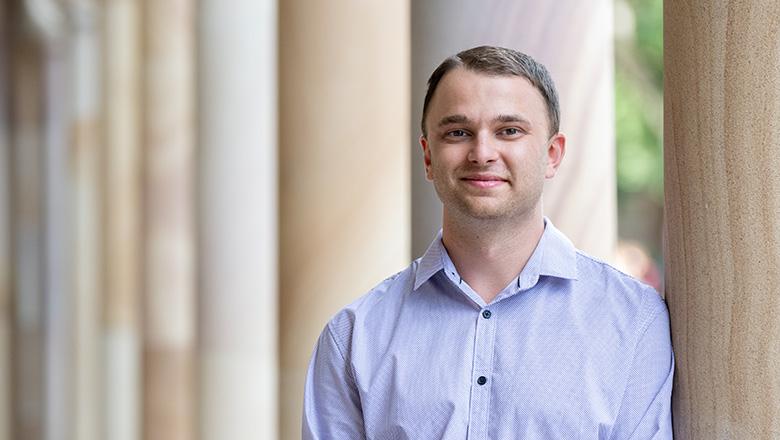
Hamish decided to take the leap and change his career trajectory completely after a road trip around Australia inspired him to find out more about where the food we eat comes from.
What kind of hands-on experience in the environment and sustainability sectors did you get throughout your degree?
James: I was fortunate enough to get a position working in the Protected Area Strategy and Investment team at the Department of Environment and Science as part of my 6-month industry placement course. In this role, I helped to implement Queensland’s Protected Area Strategy 2020–2030.
My time there was invaluable not only because I was able to leverage my placement into a full-time job, but also because it gave me a huge appreciation for the role our state government plays in protecting our environment as Queensland’s largest landholder.
Hamish: I have had plenty of field trips and guest lecturers in my degree. The benefits of these activities cannot be overstated. I've learnt so much from leaders in industry and government while I've been studying here; UQ has a really big push on bringing people in to give a diverse range of perspectives.
“I've been on field trips to research facilities, farms, nurseries, markets, and some of the most high-tech labs in the country. Learning about the sustainable practices of each of the businesses and organisations we visited has been incredibly rewarding.”
What does an average day look like for a postgrad student in your degree?
Hamish: I wake up, drive to UQ's Gatton campus and usually go to the gym. After that, I'll go to classes, which is usually about 3 hours of lectures or workshops. I'll have lunch with friends at the uni café or prepare something that I've brought with me.
In the afternoons, we have practicals for some classes, which run for about 3 hours. If we don't have practicals for a particular class, I'll either go to the library to study, or head home and call it a day.
Looking to study a postgraduate degree while you work? Find out more about how UQ provides flexibility for postgrads.
How have postgrad environment studies helped you to achieve your career goals and find success in your field?
James: The Master of Environmental Management was a fantastic program as it gave me a brief crash course in science 101, but also exposed me to a variety of different topics/career options. I was able to learn about everything from understanding climate change, conservation and wildlife biology, regulatory frameworks, sustainable business practices, anthropology, spatial mapping and fire management.
“The wide variety of knowledge areas and quality of courses allowed me to determine which career path I wanted to take and prepared me well for employment.”
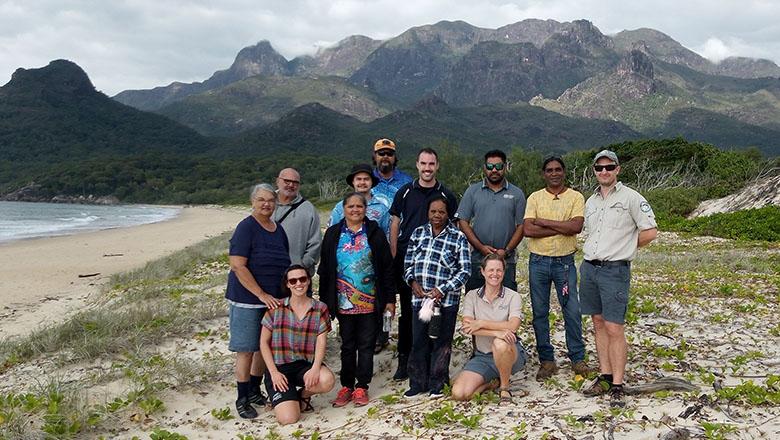
James works as a senior project officer in the Ecotourism team within Queensland’s Department of Environment and Science. In this position, he often gets to meet First Nations people, learn about their Country and work with them to find ways to incorporate Indigenous knowledge into the day-to-day management of Queensland’s national parks.
Why did you choose UQ for your postgraduate degree?
Hamish: UQ is an internationally renowned university in the field of agricultural science. Not only that – UQ's agriculture degrees are taught at Gatton campus. It's a beautiful, serene campus, surrounded by farmland, making it an inspiring place to learn and grow.
Is UQ one of the best universities for sustainability studies?
If you want to study sustainability at university, or more specifically, study environmental sustainability, here are some good reasons to choose UQ:
- We are #1 in Australia and #18 in the world for environmental sciences.
- We are #1 in Australia and #19 in the world for agriculture and forestry.
– QS World University Rankings by Subject 2024.
Furthermore, we’re leading research in the environment and sustainability sectors, and we’re also leading by example through the sustainability initiatives we undertake across our campuses.
The best masters in sustainability might not actually have ‘sustainability’ in the title. Here at UQ, we embed a focus on sustainability in all our environmental and agricultural programs. Read on to discover our sustainability degrees.
What types of postgraduate degrees can you study in environment and sustainability at UQ?
While UQ doesn’t have a specific Master of Environment and Sustainability program, it offers much more by way of targeted postgraduate programs in environment and sustainability. This means you can choose a degree specific to the field you’re interested in.
Rather than completing a general masters in sustainability, you may find yourself delving into more specialised degrees that complement and build upon the knowledge you gained in your undergraduate degree or during your career.
Begin your journey to postgraduate studies in environment and sustainability at UQ with a:
- Master of Environmental Management*
- Master of Agricultural Science*
- Master of Environmental Health Sciences*
- Master of Sustainable Energy*
- Master of Sustainable Energy (Management)
- Master of Conservation Science.
*Also available to study as a graduate certificate or graduate diploma.
Find out how to get postgrad ready in 12 months or discover what it’s like to study postgraduate programs in other fields of interest.


